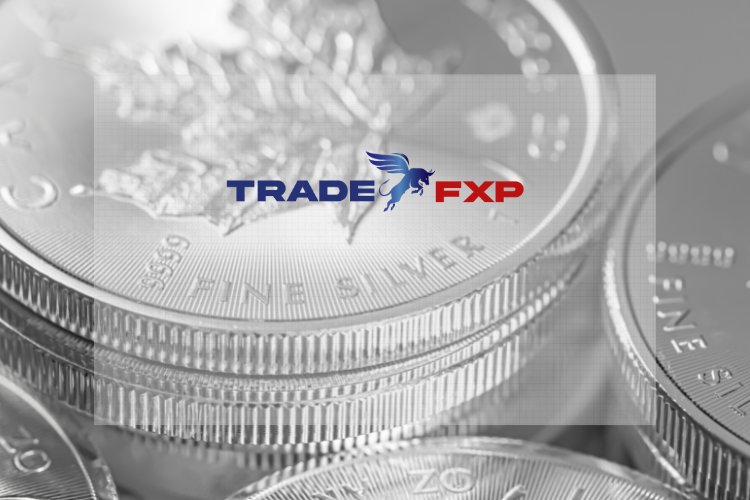Introduction to trading and investing in silver
Boost your financial literacy with our comprehensive blog post on investing in silver. Learn about trading strategies, market trends, and the role of silver in the economy.

Introduction to trading and investing in silver
Trading and investing in silver can be a potentially profitable endeavour for those who are interested in diversifying their portfolio or seeking out alternative investment opportunities. Silver, like other precious metals, is often viewed as a hedge against inflation and a haven asset.
Before diving into trading and investing in silver, it's important to understand the basics of the silver market. Silver is a metal that is mined from the earth and is widely used in a variety of industries, including jewellery, electronics, and industrial applications. The price of silver is influenced by several factors, including supply and demand, economic conditions, and geopolitical events.
There are several ways to trade and invest in silver, including buying physical silver, such as coins or bars, or buying silver futures contracts or exchange-traded funds (ETFs) that track the price of silver. It's important to carefully research and consider the pros and cons of each option before making a decision.
If you're interested in trading and investing in silver, it's also important to be aware of the risks involved. Like any investment, the price of silver can fluctuate and there is no guarantee of a profit. It's important to carefully assess your financial goals and risk tolerance before making any investment decisions. It may also be helpful to consult with a financial advisor or professional to determine if silver is a suitable investment for you.
Why should I invest in silver?
There are several potential benefits to investing in silver, including:
- Diversification: Silver can be a good way to diversify your investment portfolio and reduce the overall risk of your investments.
- Inflation hedge: Silver, like other precious metals, is often viewed as a hedge against inflation. This means that the value of silver may increase as the cost of living goes up, potentially providing a hedge against the erosion of purchasing power.
- Haven asset: Silver, like gold, is often considered a haven asset, which means it may be less volatile than other investments and may provide a sense of security during times of economic uncertainty.
- Industrial demand: Silver has a wide range of industrial uses, including in electronics, solar panels, and medical equipment, which may increase the demand for the metal and potentially drive up the price.
- Limited supply: There is a limited supply of silver, which may increase the value of the metal over time as demand for it grows.
It's important to note that investing in silver, like any investment, carries some level of risk. The price of silver can fluctuate, and there is no guarantee of a profit. It's important to carefully assess your financial goals and risk tolerance before making any investment decisions. It may also be helpful to consult with a financial advisor or professional to determine if silver is a suitable investment for you.
Silver Investing and Trading: Pros and Cons?
Pros of investing and trading in silver include:
- Diversification: Silver can be a good way to diversify your investment portfolio and reduce the overall risk of your investments.
- Inflation hedge: Silver, like other precious metals, is often viewed as a hedge against inflation. This means that the value of silver may increase as the cost of living goes up, potentially providing a hedge against the erosion of purchasing power.
- Haven asset: Silver, like gold, is often considered a haven asset, which means it may be less volatile than other investments and may provide a sense of security during times of economic uncertainty.
- Industrial demand: Silver has a wide range of industrial uses, including in electronics, solar panels, and medical equipment, which may increase the demand for the metal and potentially drive up the price.
- Limited supply: There is a limited supply of silver, which may increase the value of the metal over time as demand for it grows.
Cons of investing and trading in silver include:
- Volatility: The price of silver can be volatile, which means it can fluctuate significantly in a short period. This can make it challenging to predict the future value of silver and may result in significant losses if the price drops.
- Storage and insurance costs: If you buy physical silver, you'll need to store it securely and insure it against loss or damage, which can add to the overall cost of your investment.
- Taxes: Silver, like other investments, may be subject to taxes, which can reduce your overall profits.
- Lack of liquidity: Silver may not be as liquid as other investments, which means it may be more difficult to sell quickly if you need to.
- Risk of fraud: There is a risk of fraud in the silver market, which means it's important to be careful when buying silver and to only purchase from reputable dealers.
It's important to carefully consider the pros and cons of investing and trading in silver before making any decisions. It may also be helpful to consult with a financial advisor or professional to determine if silver is a suitable investment for you.
Is buying Silver ETFs worth it?
Exchange-traded funds (ETFs) that track the price of silver can be a convenient and cost-effective way to invest in silver. ETFs, offer investors exposure to the silver market without the need to physically buy and store the metal.
There are several pros to investing in silver ETFs:
- Convenience: Silver ETFs can be bought and sold like stocks, which means you can easily buy and sell them through a brokerage account.
- Diversification: Silver ETFs offer exposure to the silver market, which can be a good way to diversify your investment portfolio and reduce the overall risk of your investments.
- Professional management: Many silver ETFs are professionally managed, which means you don't have to worry about storing or insuring the physical metal.
- Low costs: Silver ETFs generally have lower costs than buying physical silver, as you don't have to pay for storage or insurance.
However, there are also some potential downsides to investing in silver ETFs:
- Risk of fraud: While rare, there is a risk of fraud in the ETF market, which means it's important to be careful when selecting an ETF and to only invest in reputable funds.
- Tracking error: Some silver ETFs may not perfectly track the price of silver, which means the value of the ETF may not always match the value of the underlying metal.
- Lack of physical ownership: When you invest in a silver ETF, you don't own physical silver. This means you don't have the option to take possession of the metal if you choose.
It's important to carefully research and consider the pros and cons of investing in silver ETFs before making a decision. It may also be helpful to consult with a financial advisor or professional to determine if silver ETFs are a suitable investment for you.
Silver buying pros and cons: what are they?
Pros of buying physical silver include:
- Potential for price appreciation: The price of silver can fluctuate, and if the price increases, your physical silver may be worth more.
- Potential for price stability: Silver, like other precious metals, is often viewed as a haven asset, which means it may be less volatile than other investments and may provide a sense of security during times of economic uncertainty.
- Tangible asset: Physical silver is a tangible asset that you can hold in your hand, which may provide a sense of security and ownership.
- Portability: Physical silver, such as coins or bars, is portable, which means you can easily take it with you if you need to.
Cons of buying physical silver include:
- Storage and insurance costs: If you buy physical silver, you'll need to store it securely and insure it against loss or damage, which can add to the overall cost of your investment.
- Lack of liquidity: Physical silver may not be as liquid as other investments, which means it may be more difficult to sell quickly if you need to.
- Risk of fraud: There is a risk of fraud in the silver market, which means it's important to be careful when buying silver and to only purchase from reputable dealers.
- Theft: You know what I mean.
- Hunger: You cannot eat silver during a recession. No one will buy it.
It's important to carefully consider the pros and cons of buying physical silver before making a decision. It may also be helpful to consult with a financial advisor or professional to determine if physical silver is a suitable investment for you.
Conclusion
Investing and trading in silver can be a potentially profitable endeavor for those who are interested in diversifying their portfolio or seeking out alternative investment opportunities. Silver, like other precious metals, is often viewed as a hedge against inflation and a haven asset.
There are several ways to trade and invest in silver, including buying physical silver, such as coins or bars, or buying silver futures contracts or exchange-traded funds (ETFs) that track the price of silver. Each option has its own set of pros and cons, and it's important to carefully research and consider these before making a decision.
It's also important to be aware of the risks involved in trading and investing in silver. The price of silver can fluctuate, and there is no guarantee of a profit. It's important to carefully assess your financial goals and risk tolerance before making any investment decisions. It may also be helpful to consult with a financial advisor or professional to determine if silver is a suitable investment for you.
To join our Hunter AutoBot Trading Program CLICK HERE
Why do you need to be with TradeFxP? CLICK HERE
All About TradeFxP's Hunter Ai EA Autobot CLICK HERE
To read more interesting articles CLICK HERE
To contact me
abe@tradefxp.com Phone: +44 7441 44 3348
Skype: abetrex www.tradefxp.com
Download this article as PDF - Attached



 admin
admin 










